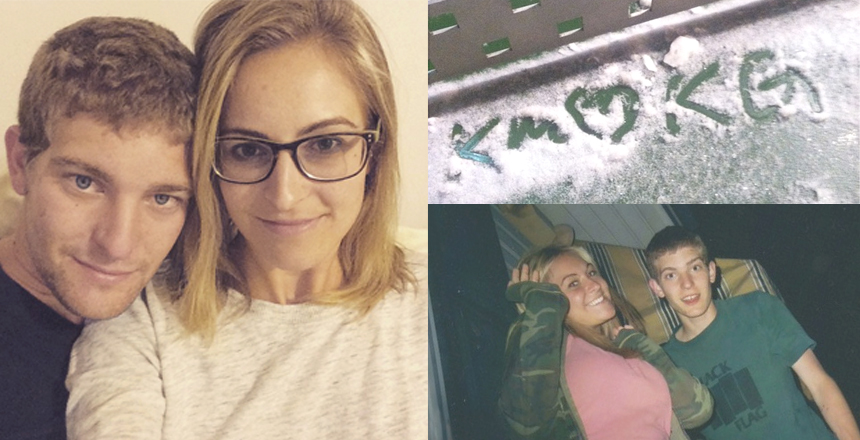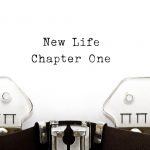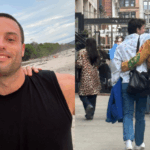I could map out my teenage years and entire adult life by the moments spent with Keith. I first met him in middle school, when he was a shy, curly-haired skateboarder in a Nirvana t-shirt. When we were in eighth grade I learned he had a crush on me. We first kissed when we were in high school. We officially became boyfriend and girlfriend in my college dorm room. He was the artist, a musician, but he was always my muse.
We’d been off and on in the seven years since my sophomore year of college, partly because I could never find anybody whose love for me felt nearly as deep. We had been living together for six months when, in March of this year we had a terrible, late-evening argument. That night, Keith died “from suicide.”
Related
The night suicide took Keith, we had gotten into an awful fight I’ll regret for the rest of my life, because he was the love of my life. I was still angry when I asked him to turn off the light in the hallway, and when he walked out of the room and did not come back right away, I assumed he stepped outside for a cigarette or walk, maybe even into the living room to write in his journal. But after peeking through my bedroom window to the stoop out front fifteen minutes after he had walked away, I realized his shoes were still in the house. He hadn’t gone for a walk, so I went looking for him inside.
That’s when I found him – in the early hours of March 7th – hanging by the neck from the landing above the stairs in our apartment. He stayed alive, his eyes bloodshot and half-open, for about 12 hours after I had cut him down. I knew, though, as soon as the paramedics told me his pupils were not reacting to light, that he wouldn’t survive. I had learned the brain’s failure to modulate pupils is a death sentence from reading Joan Didion’s The Year of Magical Thinking, which I earnestly consumed after another tragedy in 2013.
Had I gone looking for Keith sooner I could have rescued him. I know this because the paramedics, nurses and doctors all asked how long he’d gone without oxygen. I wonder if, during his last moments alive, Keith had changed his mind. Did he take his final breath hoping that I would come and find him? Keith struggled with addiction and depression for years and I did everything I could to save him. And yet, I feel like I failed him at the moment he needed me most.
Now that several weeks have passed, and the shock and denial are fading, I miss him more than I blame myself. I can accept that I could have saved Keith had I gone looking for him earlier – that is a simple, painful fact. But I can also accept that I couldn’t have forever shielded Keith from his pain. Suicidal ideation had already taken him, and any other moment or feeling of hopelessness could have ended with the same results.
Even knowing this, I wonder if saving him would have changed the trajectory of his life, shifting him toward light instead of darkness. But my challenge now is to learn how to feel and accept Keith’s love for me without the pain of my guilt interrupting what had, until that night, been something beautiful for so very long.
Keith is gone but I’m still looking for him – in the grocery store, where I buy his favorite ice cream, in my closet, where I smell his sweaters for a trace of his scent, and on my phone, which I keep checking for the text messages I’ll never receive. I’m also on a new mission: Unable to save him, I’m dedicated to (maybe even obsessed with) sharing the music he created so passionately yet was never shared with the world. I have live recordings, MP3s, even songs he sang to my desktop computer a week before he died. I need to share them because they are a part of my grief and a part of our story.
A misfit who struggled with school, finding work, and using substances in moderation, Keith wrote songs documenting the feelings he struggled to find the words for in social situations. One of my friends described his music as “raw.” For several years, it was also the center of my social life: Our friends would gather in a circle in his tiny attic, singing and dancing to his songs together in a way that made outsiders lucky enough to witness it gush at our good times. Keith’s music, like his personality, made us comfortable with our insecurities. He was a fiercely loyal friend and agitator of the mainstream, an advocate for everyone lucky enough to understand him.
I regret not having saved the daily notes he left on my bed, on the fridge, or on a bag of bagels he purchased after waiting an hour in the cold for the bakery to open. But I have the music he left behind. What breaks my heart even more than how much I miss him is that he’ll never achieve his dream of becoming a professional musician – of being heard. It’s also a bit of “magical thinking,” as Didion would say, that if I keep his music alive, I can keep him with me, too. In one of Keith’s old songs, his bandmate sings “When you kill yourself, we’ll spread your ashes on the internet.” And now I am.
The night of his service we attempted to recreate those attic sessions, watching his videos and singing along as his former bandmate played the songs we knew so well. It was a nice way to say goodbye, but an even better way to keep him alive. As he sang in a video I watched of him recently, “We want you around. We love you around.”
For help on supporting someone affected by suicide, click here.
Listen to a playlist of Keith’s music:
Kristen Gwynne is a freelance reporter with a focus on drug policy and criminal justice. Her work has appeared at VICE, RollingStone.com, The Nation, and elsewhere. Follow her on Twitter @KristenGwynne.












